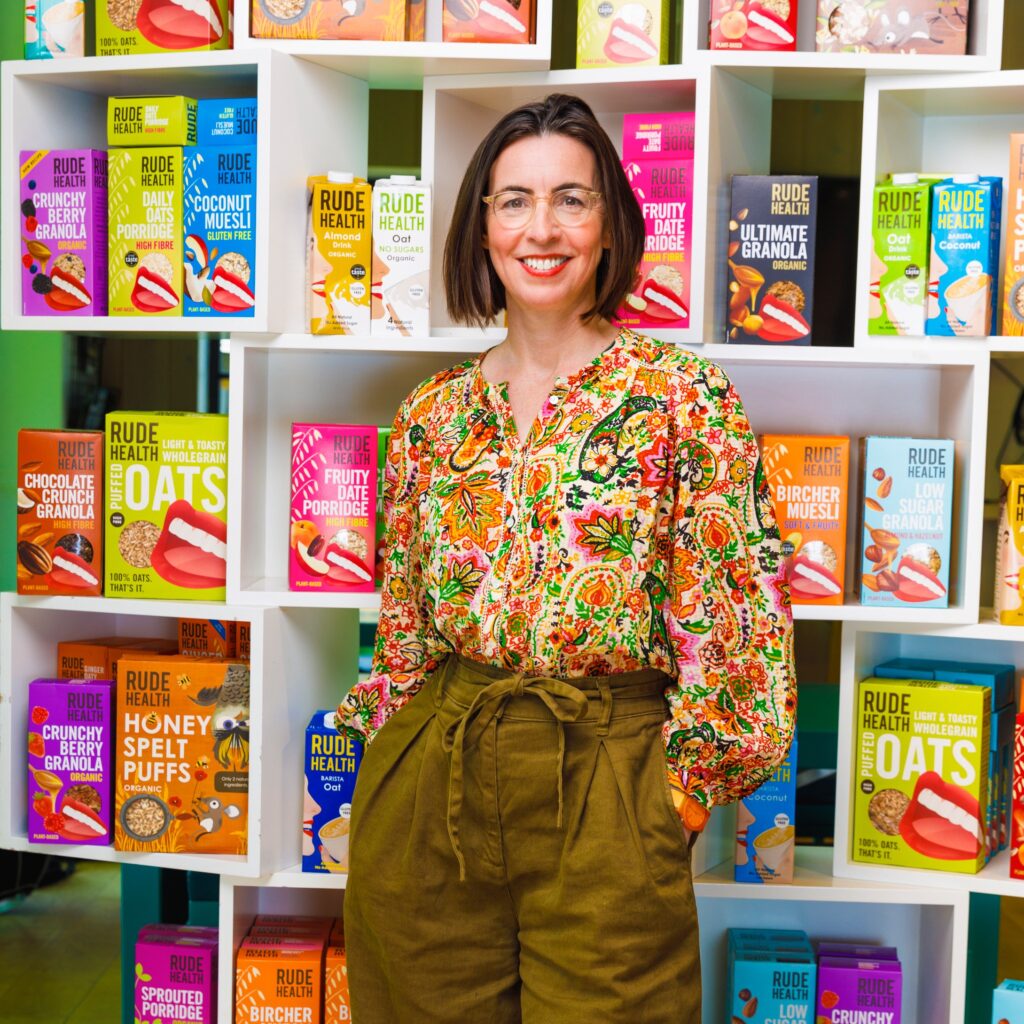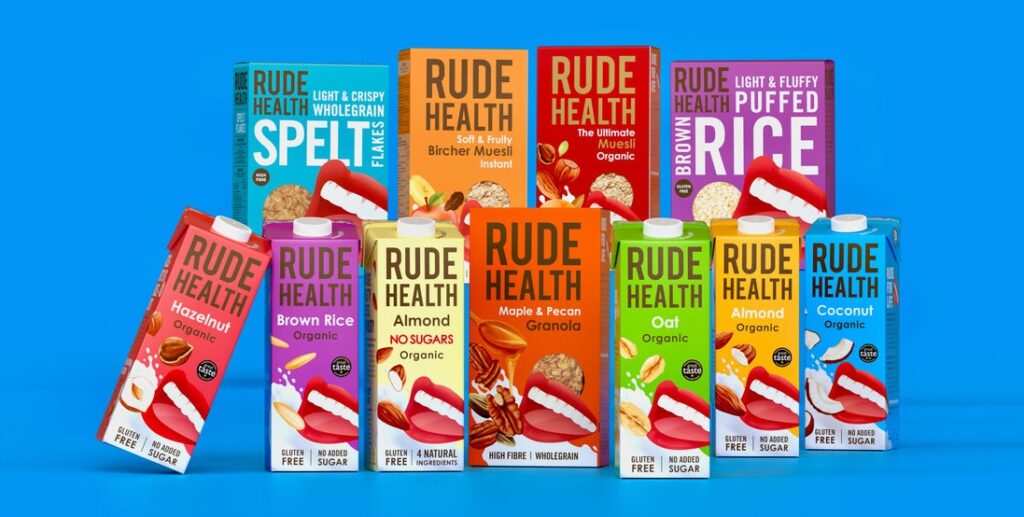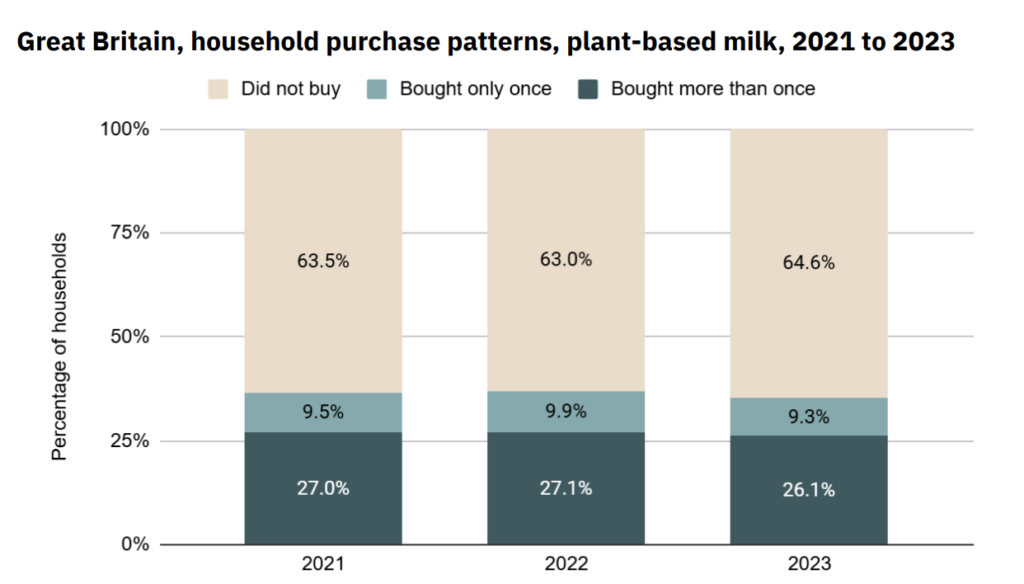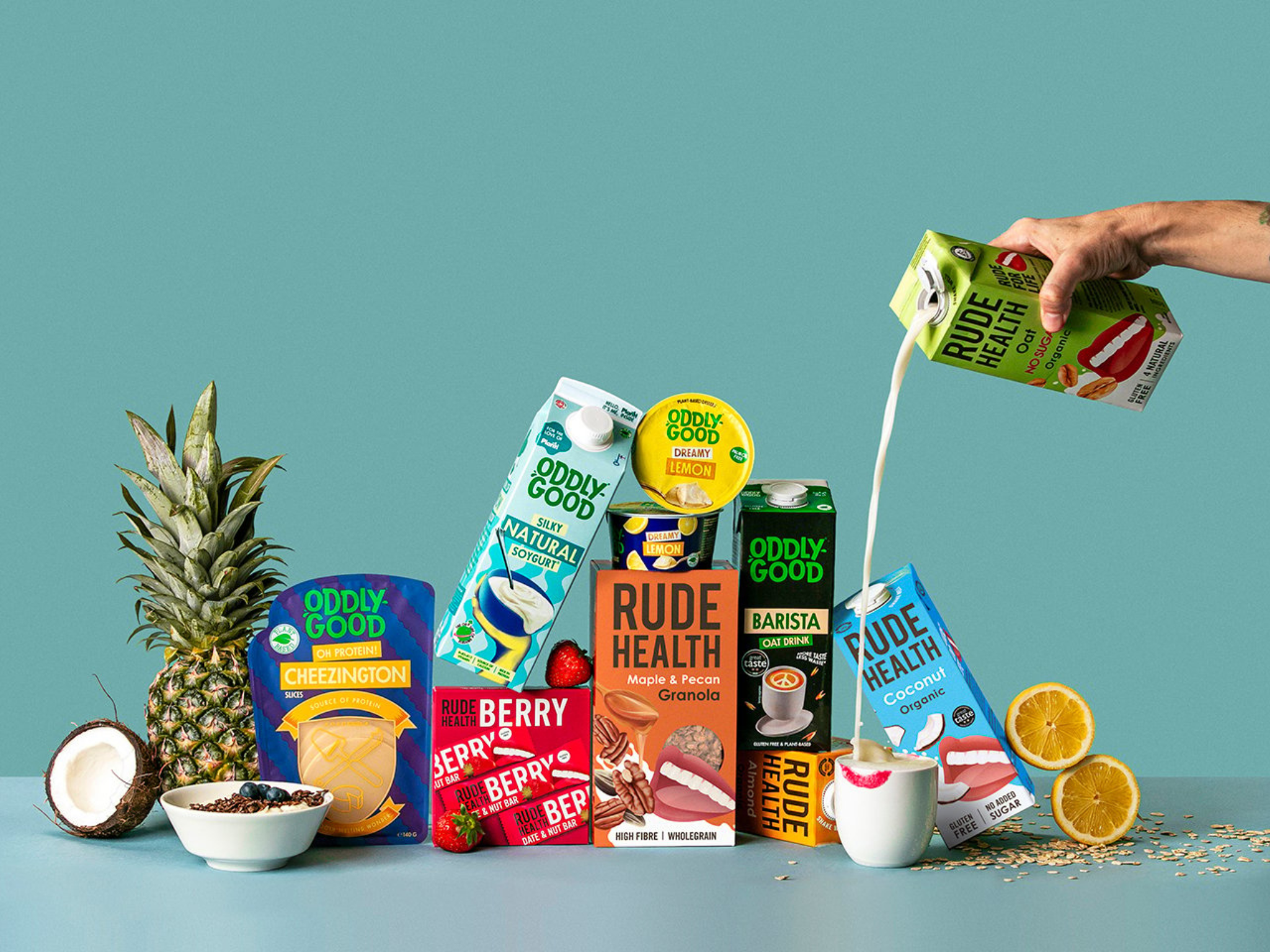5 Mins Read
Finnish vegan company Oddlygood, a spin-off of dairy giant Valio, has acquired British plant-based milk brand Rude Health.
One of the UK’s most well-known brands in the vegan space, Rude Health, has been bought by Oddlygood, the Finnish plant-based food company majority-owned by dairy leader Valio.
The terms of the transaction – which was two years in the making – were undisclosed, but Rude Health was valued at £70M ($91M) when it sold a 10% stake to PepsiCo in 2020. And in the year to March 2024, it reported a revenue of £23.8M/$31M (a 25% hike), with pre-tax profit jumping from £8,000 ($10,400) to £101,000 ($131,300).
Founders Camilla and Nick Barnard are expected to make a seven-figure sum from the sale, having owned just over 50% of the business before the deal.
The acquisition will not affect Rude Health’s 30-strong workforce in the short term, and the team will continue to operate from the UK and be led by CEO Tim Smith. Camilla, meanwhile, will work for Oddlygrood as a brand consultant two days a month, according to the Times.
“The Rude Health brand has grown beyond anything I could imagine to become a household name. Now is the right time to find a partner who can help take it to the next stage of success and Oddlygood shares so many values and the ambition to make this possible,” she said.
“Rude Health is one of the biggest success stories in British plant-based food. It’s nothing less than impressive the way the team has grown its product range alongside such a distinctive and well-thought-of brand to deliver commercial success,” added Oddlygood CEO Niko Vuorenmaa.

Oddlygood strengthens UK foothold with Rude Health deal
Rude Health was founded nearly two decades ago with just over £4,000 in cash, and has grown into one of the UK’s leading plant-based brands. It has a wide range of plant-based milk products, alongside cereal and snack ranges, that can be found in all major UK retailers and in over 40 countries. The company also runs a café in London, and is on course to deliver €33M ($35.7M) in revenue in 2024-25.
Its new parent company, meanwhile, has been around since 2018, spinning off from Valio three years later with a range of oat-based dairy alternatives, including milks, cheeses and yoghurts. Oddlygood has since expanded to countries across Europe, and is expecting a turnover close to €50M ($54M) this year.
It launched its desserts in the UK in June 2023, followed by a rollout of its plant-based milks earlier this year. The takeover of Rude Health comes just a year after Oddlygood acquired fellow Nordic dairy-free brand Planti, and is a marker of the business’s expansion strategy.
“Our ambition is to become one of the leading plant-based companies in the UK and Europe and this acquisition will help accelerate this, but key to its success is the strong alignment between Rude Health and Oddlygood,” said Vuorenmaa.
That can be seen in both companies’ commitment to sustainability. Oddlygood’s oat milks, for example, use all of the oat flour, meaning that nothing is filtered out after being combined with water and other ingredients, minimising waste at its factories. Rude Health, meanwhile, is among the top three food and drink B Corp brands in the UK, with a score of 120.7 (from a maximum of 250).
Rude Health will continue to manufacture its products and look to use the R&D facilities owned by Valio, while the deal will help Oddlygood establish a UK base and support its expansion plans.
“Joining forces with Oddlygood opens up new opportunities for growth and innovation, and our shared missions around taste, quality and the crucial role of plant-based food and drink make this a natural fit,” said Smith. “We’re looking forward to working together and leveraging our strengths and making the healthy choice a celebration (not a sacrifice) for our customers. It’s an exciting new chapter for the brand and the team.”

Plant-based milk sales recovering in the UK
The transaction is the latest in a growing list of mergers and acquisitions in the plant-based (and the wider food) sector. The number of M&A deals in the food and drink industry grew by a third in Q2 this year, compared to the same period in 2023.
In the last three months alone, UK snacking brand Deliciously Ella was sold to Hero Group, tofu maker The Tofoo Co was acquired by Comitis Capital, Swedish mycoprotein startup Mycorena was taken over by Naplasol after filing for bankruptcy, Nuggs was purchased by Ahimsa Companies, the Aussie Plant Based Co was bought by Smart Foods a week after entering liquidation.
“In the context of flat or declining category demand, consolidation, and M&As are vital for rapid growth in the plant-based sector. These strategies allow companies to scale, innovate, and navigate through resilience challenges more effectively,” Matthew Glover, co-founder of holding company Vegan Food Group (which has acquired three plant-based brands in the last 18 months) told Green Queen in February.
“Both Oddlygood and Rude Health have complementary portfolios, target audiences and capabilities which will enable us to grow the business,” Vuorenmaa says of this latest M&A deal. “What we’ve achieved with Oddlygood in such little time is down to the expertise and passion of our team. We’ll focus the same attention and care to Rude Health and look forward to collaborating with their team.”

Milk alternatives are the most popular plant-based category in the UK, accounting for 43% of its market share last year and consumed by 35% of households across the country, according to Circana data crunched by the Good Food Institute (GFI) Europe.
But the sales value of these products flatlined (up by only 0.8%) in 2023, driven by a 9% rise in costs since January 2022. It means plant-based milk is 67% more expensive than dairy on average. Meanwhile, both unit and volume sales of milk alternatives dropped by 9% last year. However, this decline may be levelling off, with weekly unit sales falling by only 1.4% in early 2024.
“Our analysis finds that lower prices and higher quality can power the growth of these more sustainable options, so policymakers and manufacturers should continue to invest in innovation and infrastructure to develop tastier, more affordable products capable of building a diversified, resilient and healthy European food system,” Helen Breewood, research and resource manager at GFI Europe, said last week.



